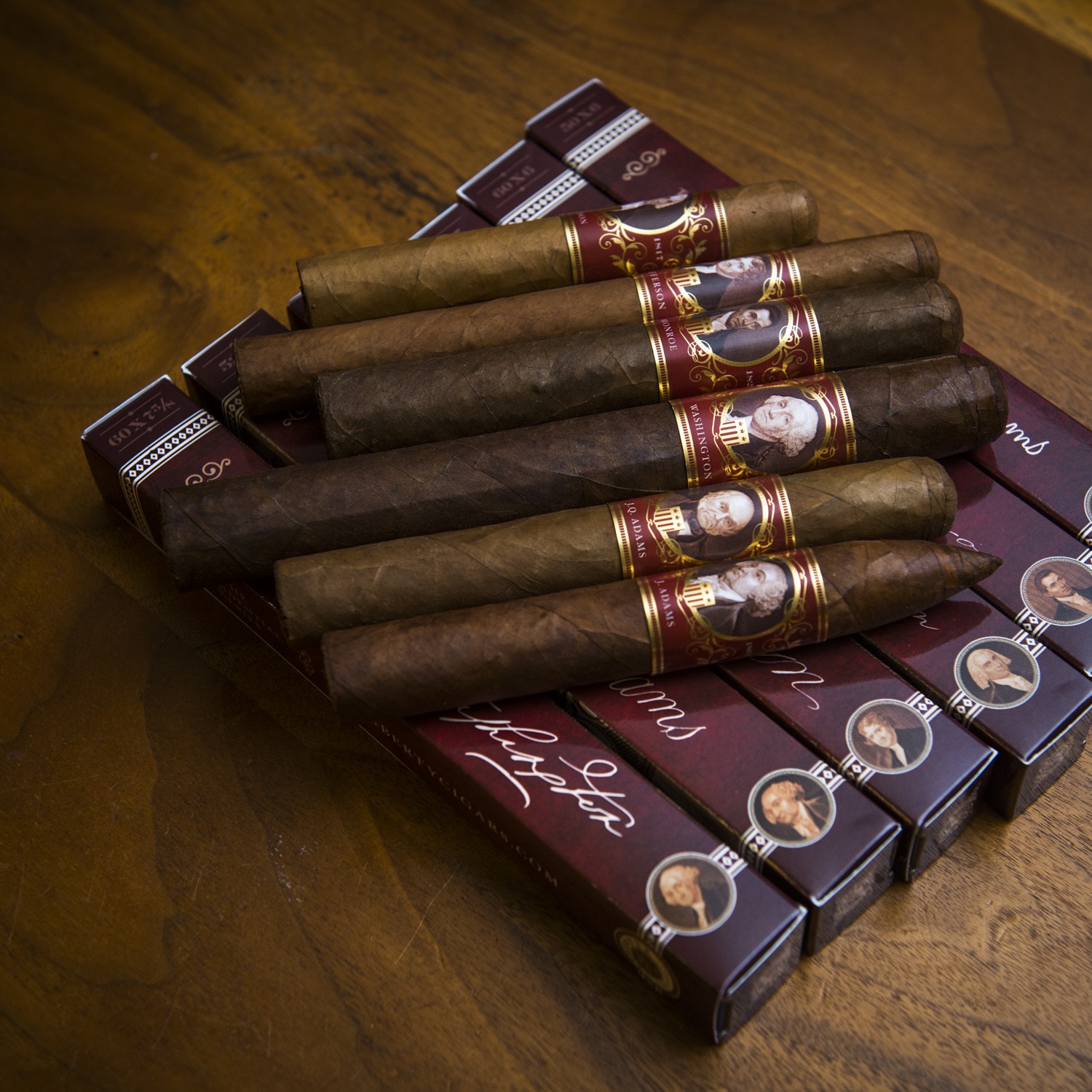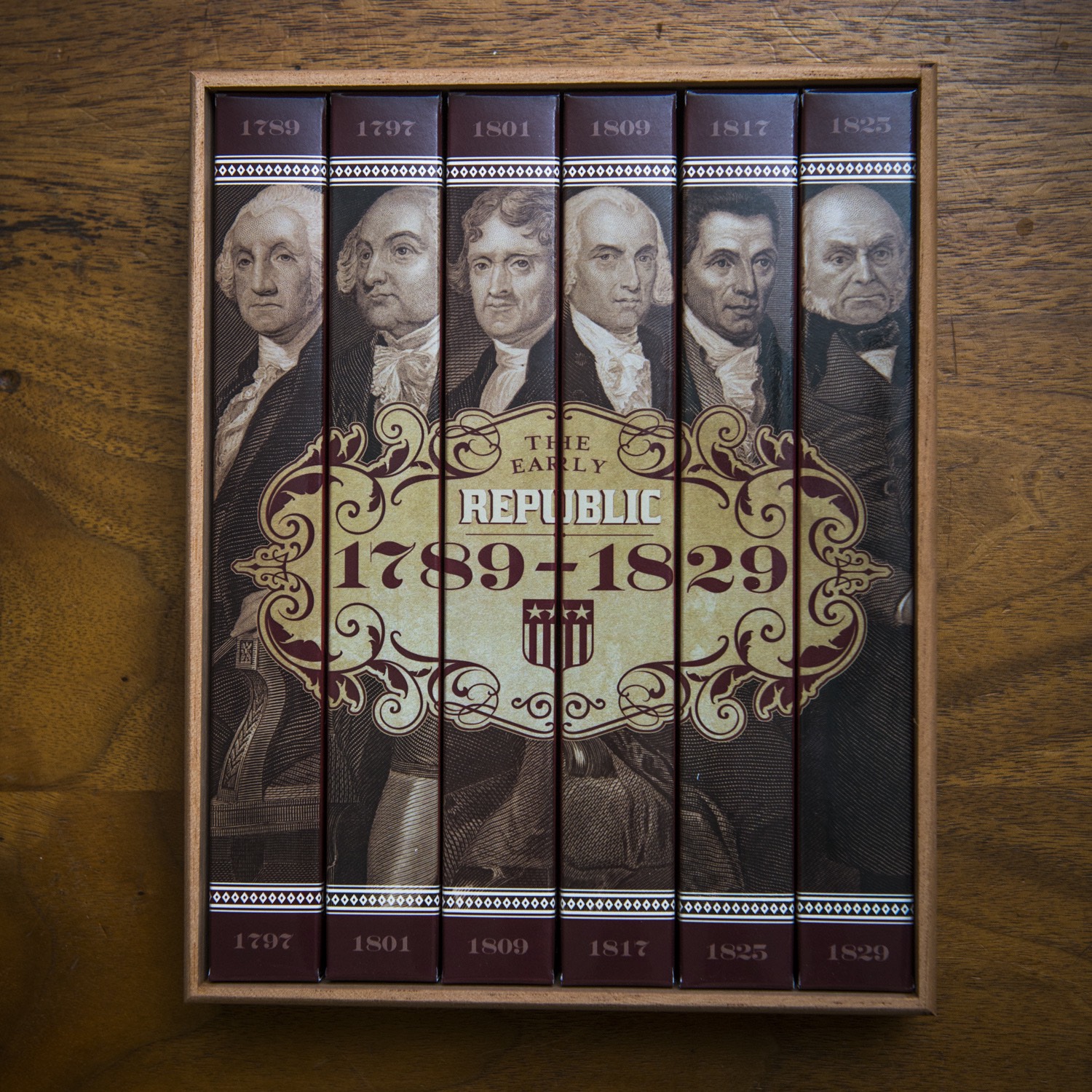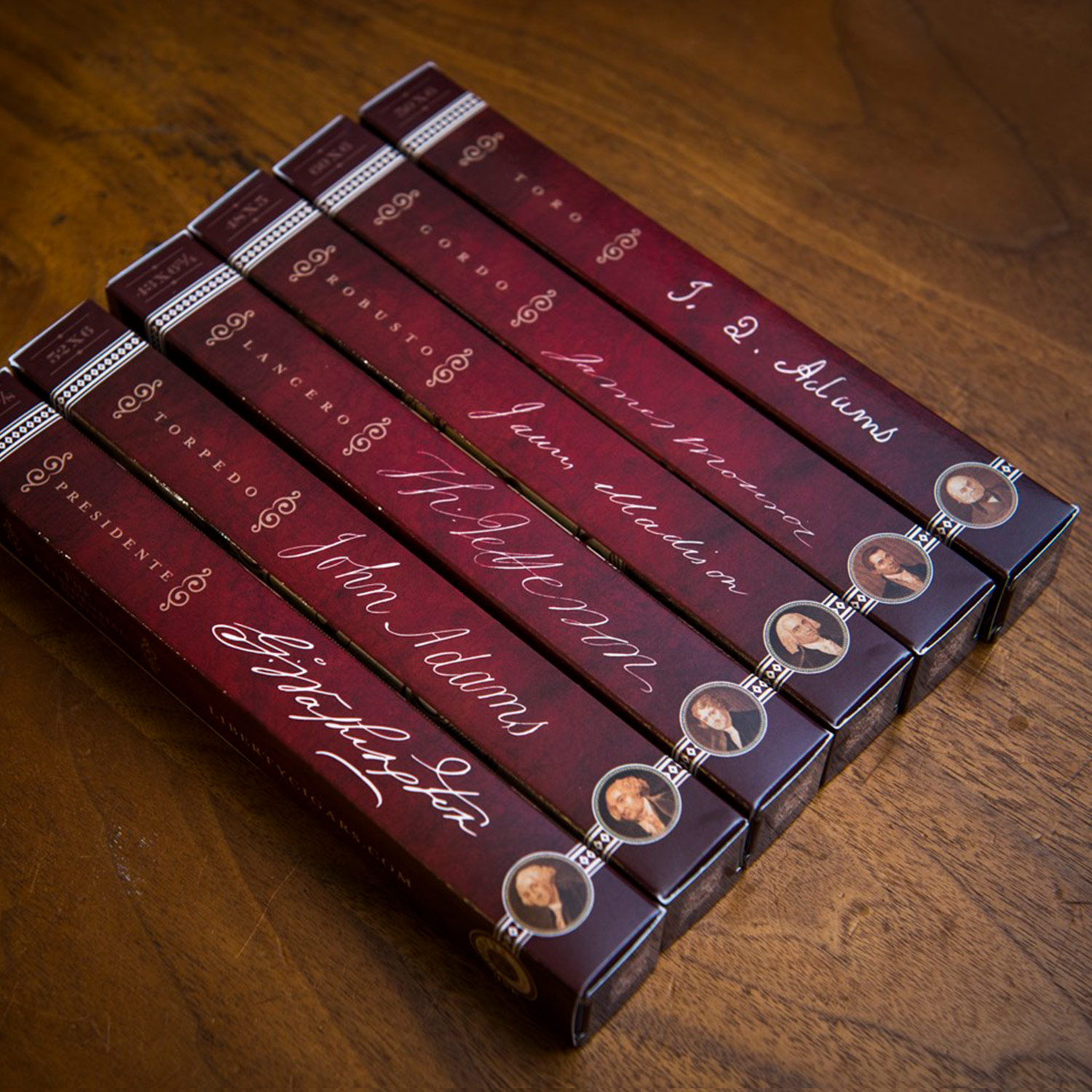George Washington
1789-1797
Vitola
Presidenté
Size
60 x 7 5/8
Body
Medium-Full
Wrapper
Ligero Nicaragua
Binder
Conneticut Broadleaf
Filler
Dominican Nicaraguan
George Washington (1789-1797)
At the age of twenty-one, he fell through the ice into the frozen Susquehanna River, swam to an island, spent the night encased in ice, and walked over the re-frozen river the next morning to no ill effects. He became the target of an assassin on a trail in Pennsylvania, who fired at him point blank and missed. At the age of twenty-three he had two horses shot from under him and four bullets through his coat without a scratch to himself in a battle where most officers were shot down. At forty-five he was in the sights of one of the best marksmen in the world, at a short distance, but the shooter passed up the shot because the target’s back was turned to him. George Washington confessed in a letter to his brother he ‘was under “the miraculous care of providence (1763)” Indeed, Providence had many things for Washington to accomplish before he succumbed to a sore throat in 1799 at the age of sixty seven.
By the time he became President of the United States, George Washington had faced danger and death many times in two major wars, surveyed millions of acres of land on the frontier, served his countrymen in the Virginia House of Burgesses, and established a home at Mount Vernon, characterized by incredible hospitality and farm productivity. When the new Constitution called for a chief executive to lead the country, the people turned to General Washington as President by unanimous consent in the Electoral College. Without historical precedents, Washington sculpted the office to fulfill the demands of the Constitution and execute the laws passed by the Congress. He chose wise and experienced counselors, including at State, the man who would define the era following Washington and Adams, Thomas Jefferson.
The character of George Washington, much of it inculcated in his youth, and even more through self-discipline and self-conscious training, made him the paragon of American heroes until modern times. In the nineteenth century especially, young men sought to emulate the Great Washington such as the one who succeeded, more than most, General Robert E. Lee. Washington was a man of vision who pursued the goal of independence with a remarkable persevering zeal, characterized by personal courage and self-control. He made errors in judgement and sometimes suffered the opposition and embarrassment of subordinates who were slow to obey, or were politically subversive, yet he never gave up.
Washington exhibited a strong faith in God’s providential oversight of the new nation and himself, humbly resisting seizing power not given him by Congress or the people. He maintained a private and quiet dignity when other leaders sought attention and used political machinations to improve their position. George Washington’s chief confidant throughout his adult life remained his faithful wife Martha, who was at his side in war and peace, and oversaw his beloved Mt. Vernon with grace and hospitality.
It is no wonder there are hundreds of statues, memorials, streets, schools, and towns, as well as the Capitol of the United States themselves, named after Washington. His doubts, errors, faults, and losses are subsumed under the ultimate success of his leadership that built the Republic, defeated the mightiest nation on earth in the fields of battle, molded the Presidency, and lived a personal life of probity and virtue. He towers over the historical landscape like his eighty-one ton memorial over all the precincts of the national capitol that bears his name.



